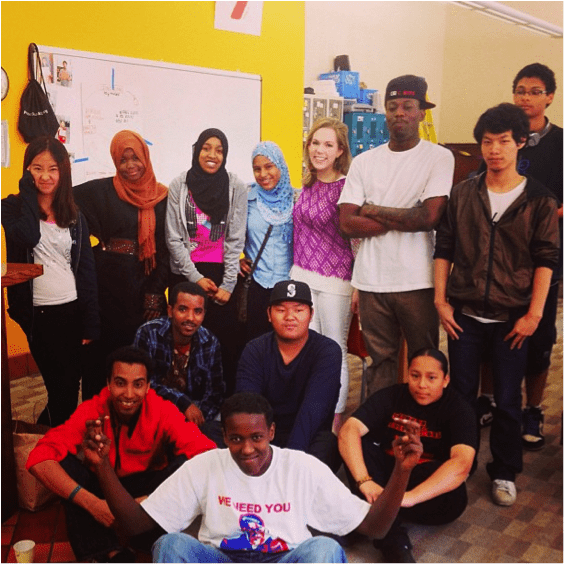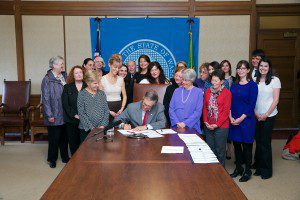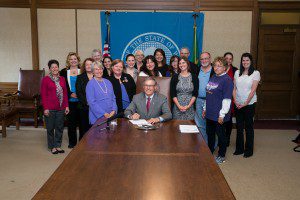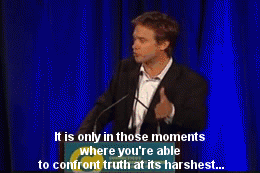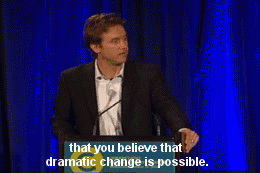This post was written by League of Education Voters CEO Chris Korsmo and originally published in The Seattle Times on September 25, 2013.
 If we are serious about closing our state’s opportunity and achievement gaps, we need to find ways to keep kids in school and learning, writes guest columnist Chris Korsmo.
If we are serious about closing our state’s opportunity and achievement gaps, we need to find ways to keep kids in school and learning, writes guest columnist Chris Korsmo.
STUDENTS can’t learn if they’re not in school.
If we are serious about closing our state’s opportunity and achievement gaps, we need to find ways to keep kids in school and learning.
While Washington state made progress in the last legislative session, there is more to be done.
Nationally, school-discipline rates are at an all-time high, double what they were in the 1970s. Millions of students are suspended from school every year. And students in groups with persistent achievement gaps are suspended and expelled from school at higher rates than their peers.
The school house, the place we all hope can serve as the “great equalizer,” is closing its doors to an alarming number of the very students who need the most support.
In Washington state, we have historically had no maximum length for suspensions. Expulsions could last indefinitely. Students, many of whom were arguably the most at risk of failure, were being left out of school indefinitely with no educational services and no plans for how to transition back into school.
A 2012 Washington Appleseed and TeamChild report requested discipline data from all 295 districts in Washington. Only 183 districts could provide detailed information about the number of long-term suspensions (defined as 10 or more days in Washington), emergency expulsions and regular expulsions. Even fewer districts could provide race and ethnicity or free and reduced-price lunch-status information of the impacted students.
Data from the 183 districts that did provide information showed that only 7 percent of students reportedly received educational services while they were out of school.
The League of Education Voters, TeamChild and Washington Appleseed were part of a strong effort to address the discipline crisis in our state during the most recent legislative session.
Washington legislators took a first step by passing a bill requiring emergency expulsions to end or be converted to another form of discipline within 10 school days. The bill also mandated that suspensions and expulsions last no longer than one calendar year, though a school may petition to exceed that limit based on public health or safety.
The new rules require schools to make detailed discipline data to be publicly available on the state’s education website. School districts are also required to create a re-engagement plan for suspended and expelled students
These are meaningful and significant improvements that will positively impact the lives of many, many children. And there is much more work to be done.
As a state, we must continue to minimize the amount of time students are out of school and maximize the opportunities for learning. District leaders must consider shortening the length of suspensions and expulsions and limiting their use. Instead, use in-school suspension and detention.
Each school district must decide what program works for its students, but many successful examples focus on keeping students in school and providing training and support for teachers covering topics such as cultural competency, social and emotional development and classroom management.
A program that is gaining attention is Positive Behavioral Interventions & Supports, or PBIS. Highline Public Schools is implementing this program in every school in the district.
A number of school districts across the country have addressed discipline problems with practices that educate and teach, rather than punishments that remove the student from class.
Baltimore’s discipline policies emphasize prevention and intervention strategies and discourage the use of out-of-school suspensions, expulsions and arrests for most student misbehavior. In four years, suspensions dropped from 1 in 5 students being out-of-school suspended to 1 in 8. The dropout rate fell nearly 4 percent.
Let’s aim to outperform Baltimore in reducing dropouts.
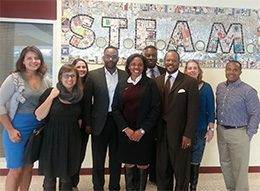 Representatives from League of Education Voters and community-based organizations recently traveled to Baltimore, Maryland, to learn more about the discipline reforms that have been implemented by Baltimore City Public Schools with great success. Upon their return, each member contributed to our blog series, “Transforming School Discipline: Lessons from Baltimore.” The post below introduces the series, which will run through mid-December. Read More
Representatives from League of Education Voters and community-based organizations recently traveled to Baltimore, Maryland, to learn more about the discipline reforms that have been implemented by Baltimore City Public Schools with great success. Upon their return, each member contributed to our blog series, “Transforming School Discipline: Lessons from Baltimore.” The post below introduces the series, which will run through mid-December. Read More  Nicholas Bradford specializes in restorative justice and transforming school discipline. He first became involved with LEV through our discipline work, and he served as part of the panel for our May 2013 community event, “Stop school suspensions: Solutions for safe, secure classrooms without removing kids.”
Nicholas Bradford specializes in restorative justice and transforming school discipline. He first became involved with LEV through our discipline work, and he served as part of the panel for our May 2013 community event, “Stop school suspensions: Solutions for safe, secure classrooms without removing kids.”
